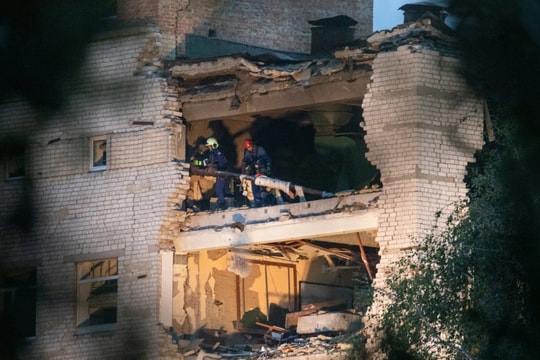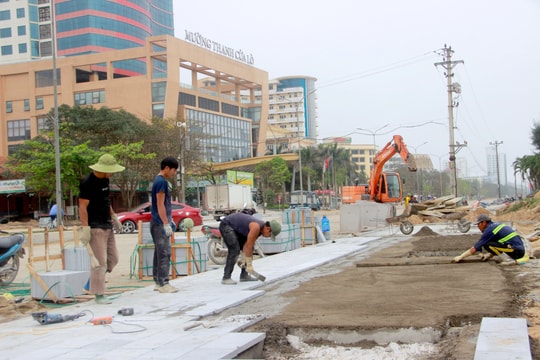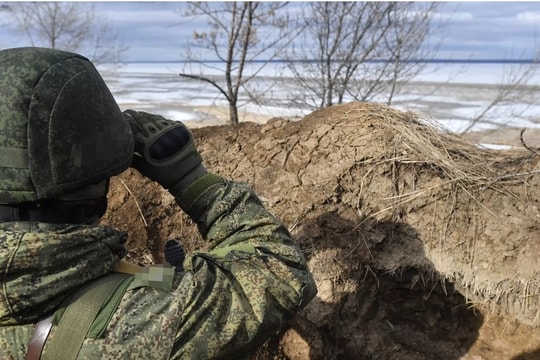Anti-corruption: Difficult to determine "clean money" or "problematic"
"Even though there is an Anti-Money Laundering Law, it is very difficult to confirm which money is clean and which is problematic."
Mr. Francesco Checchi - UNODC Southeast Asia - Pacific Regional Advisor on Anti-Corruption, emphasized this at a seminar on anti-corruption work in Vietnam co-organized by the Government Inspectorate on December 20.
Mr. Francesco Checchi said that every year an estimated 1,000 billion USD is spent on bribes while 2,600 billion USD is stolen through corruption - a figure equivalent to 5% of global GDP.
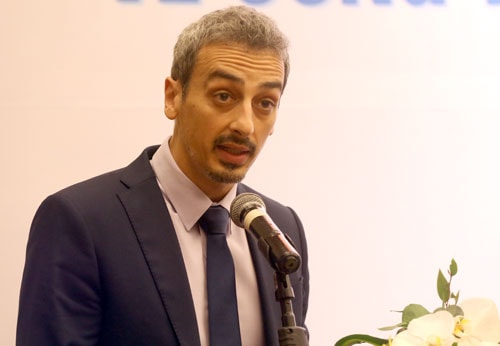 |
| Mr. Francesco Checchi, anti-corruption advisor for the Southeast Asia - Pacific region. Photo: Ba Do |
In developing countries, the estimated amount of budget lost due to corruption is 10 times larger than the total value of official development assistance (according to the United Nations Development Programme).
“This is a huge number, but the real cost of corruption is much greater,” said Mr. Checchi. That cost, he said, is that “when public money is stolen for private gain, it means that resources for building schools, hospitals, roads, bridges and other public works become scarcer. Corruption causes counterfeit or substandard drugs to flood the market, and dangerous waste to be buried in the ground or dumped in the ocean.”
Mr Checchi also said that it was the world's most vulnerable people who were affected first and worst by corruption, such as the embezzlement of public funds or foreign aid for personal gain.
He emphasized that the National Assembly of Vietnam’s passing of the amended Anti-Corruption Law has created an important driving force for anti-corruption work in the coming time. The Southeast Asia-Pacific Anti-Corruption Advisor also highly appreciated the new points in the amended Anti-Corruption Law such as expanding anti-corruption to the private sector, managing asset and income declarations in a more centralized manner, supervising anti-corruption work and a number of other new points...
“Therefore, we encourage the Government to facilitate and promote the effective participation of social organizations, businesses and the press in anti-corruption work to develop, implement and monitor policies that affect their lives,” said Mr. Checchi.
|
| Seminar on anti-corruption work in Vietnam. Photo: thanhtra.gov.vn |
The reason is that the Law on Anti-Corruption still has many shortcomings, such as the provisions on publicity and transparency are not comprehensive and lack measures to ensure implementation time, especially the principles, forms, contents and responsibilities for publicity implementation are unclear. Meanwhile, the provisions on accountability are narrow, inappropriate and not feasible.
The previous Law on Anti-Corruption also did not fully and comprehensively regulate the control of conflicts of interest for cadres, civil servants and public employees in the performance of public duties, and did not overcome ineffective measures such as giving and receiving gifts for relatives of people with positions and powers related to public duties, and did not control the activities and extra income of people with positions and powers.
In addition, regulations on transparency of assets and income have not helped control fluctuations in income, and there are still problems with the order and procedures for publicly declaring, explaining, and verifying assets when requested...
Law on PCTN gradually meets international requirements
Speaking at the seminar, Mr. Nguyen Van Kim - Director of the Legal Department (Government Inspectorate) commented that our legal policies on anti-corruption have gradually met the requirements.international requirements
Mr. Kim pointed out the recent determination of the Party and State to step up the fight against corruption by detecting and handling many major corruption cases, including those previously considered “forbidden zones” that could not be handled. This has brought confidence to the people and has been highly appreciated by international public opinion.
But according to Mr. Kim, to meet the requirements of the fight against corruption, it is necessary to operate more effectively and practically. In addition to detecting and handling, the most important thing is to find the cause and root cause of corruption, instead of handling each individual and related subject; it is necessary to find loopholes in mechanisms and policies, to make macro adjustments, but pursuing each case one by one will only meet the immediate requirements, because violations are everywhere.
Even in the handling of cadres, according to Mr. Kim, the core must be based on the measure of the provisions of the law, while handling in terms of the Party and the State only stops at its scale and scope. More importantly, it is necessary to use the law to determine whether the cadre has committed a crime or not in order to handle it by sanctions and criminal regulations.
 |
Referring to the recently passed amended Law on Anti-Corruption, the Director of the Legal Department of the Government Inspectorate also mentioned the regulations on handling assets of unclear origin, and expressed regret that at the last minute, this issue was not as expected.
He said that although we really want to, handling this story in our country is facing difficulties, due to both objective and subjective reasons, but the objective factor is the most important.Due to the current specific reality, the mechanism for managing large assets in society is not really tight.
Besides, citizens' assets have not been effectively managed, so we have not been able to handle transactions, fluctuations related to assets, and irregularities in economic and civil activities.
The second reason, according to Mr. Kim, is that the cash economy still accounts for a very large proportion. The cash flow in society is mainly cash, so it is difficult to control.
“Although there is an Anti-Money Laundering Law, it is very difficult to confirm which money is clean and which is problematic. For example, now any money transferred from abroad is welcomed and considered clean, even money of unknown origin. Therefore, managing this issue is facing many difficulties,” Mr. Kim shared.
Regarding the handling of assets of officials in cases where the origin is not clearly explained, Mr. Kim warned that if done well, it will be effective, but on the contrary, its negative side will create very unfortunate consequences, because it is related to the property rights of citizens. "Civil servants are also citizens, also have the obligation to declare and explain, but in some ways they still have rights to personal property" - Mr. Kim said.
He also said that in reality, the number of rich people in society is divided into many groups. One is businesses, business people. Two is people who strive to achieve. In particular, the rest are officials. And the source of wealth also comes from many different activities, some of which are transparent, but according to Mr. Kim, there is also a lot of information reflecting the assets of officials.
In particular, he mentioned the situation of officials who are rich from illegal violations and taking advantage of opportunities brought by their positions. Therefore, Mr. Kim believes that fighting corruption is fighting against the bad habits of those who hold the scales of justice, they must also change themselves..

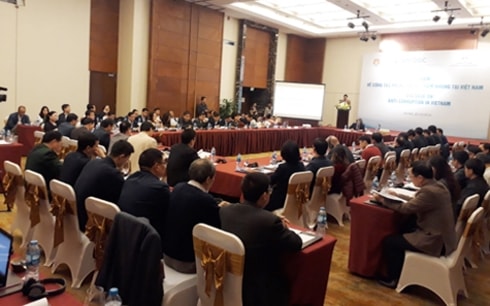

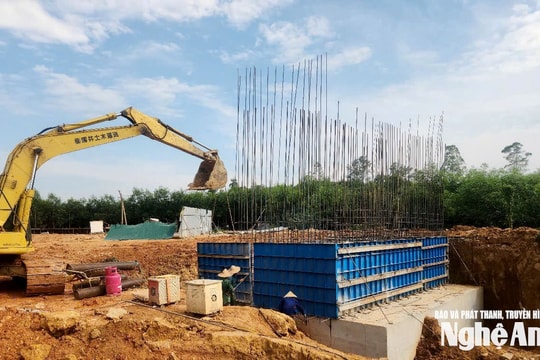
.png)
